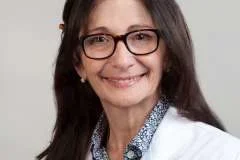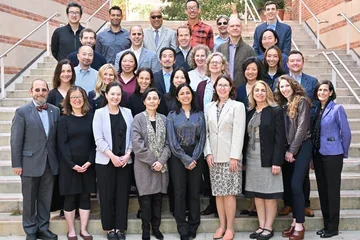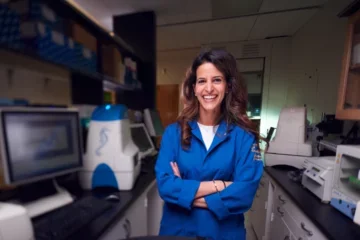What Does an Allergist Do?
The Magic of Making Life Better

A Day in the Life of Dr. Maria Garcia-Lloret, Pediatric Allergist
To pursue an education in allergology in the mid-20th century, an allergist might as well have attended the Hogwarts School of Witchcraft and Wizardry. "It was a little bit of a potion business," says Maria Garcia-Lloret, MD.
Dr. Garcia-Lloret, an associate professor of pediatrics and fellowship program director in the Division of Pediatric Allergy, Immunology and Rheumatology at the David Geffen School of Medicine at UCLA (DGSOM), has been a pediatric allergist for 15 years. She says the difference between past and present is like day and night.
What Does an Allergist Do?

Allergists see patients who have reactions to benign substances. This specialty spans all organ systems.
"You can have allergies in your eyes, your nose, your mouth, your skin, your lungs and even your gastrointestinal tract," says Dr. Garcia-Lloret.
Allergies impact people of all ages. In most cases, an allergy begins in infancy or childhood and evolves as a patient grows into adulthood. An allergist has to be versatile to treat patients in a range of ages, suffering from a range of disorders.
"Because of the diversity, it is extremely popular," Dr. Garcia-Lloret says. "For every spot I have for training, I have 90 applicants. That is the beauty of the specialty. It is very intellectually challenging."
How Has the Specialty Evolved?
Dr. Garcia-Lloret says the study of food allergies has changed dramatically in recent decades. When she finished her fellowship in pediatric allergy and immunology, her plan was to work in gene therapy or primary immunodeficiency. "Food allergies were like a side business that no one cared about," she says.
But in 2000, she began to witness a steady increase in the number of children with food allergies. "The adverse reactions to food, whether food allergy or food intolerance, didn't exist before. The allergists who were trained before 2000 didn't have the training on these adverse reactions."
What does an allergist do today? There are cells and proteins that tell the whole story and new ways of recognizing previously unidentified allergic diseases.
"If you told me when I finished my fellowship that I was going to be a specialist in food allergy, I would have laughed at you," says Dr. Garcia-Lloret. "I think the world of the specialty. Some clinicians can say, 'I save lives.' But I can say, 'We save lives and make life better.'"



